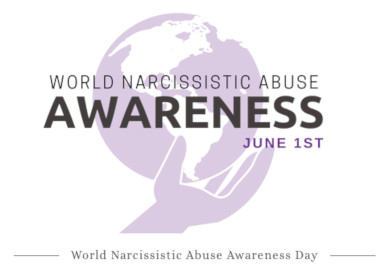Article from Issue #56 (April 7, 2023)
Repetition Compulsion: Why do We Repeat The Past?
by Bruce Bradfield

Source: The Minds Journal
Have you ever asked yourself, “Why does so-and-so keep going for the same type of partner even though their parents were abusive?” It may be a repetition compulsion.
What is Repetition Compulsion
This is a Freudian concept on which we seek the familiar; he describes it as “the desire to return to an earlier state of things.” It’s a neurotic defense mechanism, an attempt to rewrite our histories.
Imagine you are exposed to an abusive pattern with a primary caregiver, and at the time of exposure, you lack power. You have no control to change the situation. You might find yourself repeating the trauma and its circumstances as an adult.
For example, you may enter the repeated pattern as an adult in order to find control, to almost “repair” and “fix” the injury from early life, although not always successful. Importantly, these deeply rooted patterns can be playing out in our unconscious, and may not be repeating consciously.
The concept works well when it’s repeating positive cycles or helpful healthy behaviours; however, it runs us into difficulty when we’re repeating behaviours that lead to toxic relationships and various types of abuse. The theory according to the Freud was that this compulsion is lead by the “death drive” – perhaps that’s a topic for another day.
Related: Breaking Free Of Obsessive Compulsive Disorder (OCD)
Some theoretical understandings of this compulsion are that we return to what’s familiar in times of stress and repeat negative patterns and thoughts (rumination). We return to these patterns as a form of self-soothing because it’s more predictable to locate yourself there, even if it doesn’t work.
For example, a child can witness a parent who is abusive and the child may feel helpless, rejected and without control. In later life, the person may seek to have control in adult relationships and try to counter the rejection and receive the love that was denied in childhood. Unfortunately, the need to get this corrective experience can lead us to gravitate to dysfunction.
Cycle of destructive relationships
The need to heal our inner child often keeps us from letting that child go and we regress instead. This perpetuates the cycle of destructive relationships and we don’t reach the attachment need we were after and are left feeling more abandoned, rejected, helpless and out of control.
Related: Why Healing your Inner Child is Crucial for Self-Growth
One can end up seeking a partner to acquire the feeling of being in control and “correcting/fixing” the childhood experience; and in our attempts to receive the love that was denied, we can often deny your own feelings to achieve that love.
Abusive behavior
Another outcome can be the person repeating the behaviour they witnessed and becoming abusive towards others or to themselves (self-harm, addiction, high-risk behaviours) in order to feel a sense of control. This becomes a dangerous re-enactment of abuse.
Related: Narcissistic Abuse Syndrome: 10 Signs You’ve Experienced Narcissistic Abuse
Therapy for repetition compulsion.
Therapy can help to create a corrective emotional experience in order to feel empowered; so as to not feel compelled to re-enter this repetitive cycle.
A helpful therapeutic process can also help you discover your relational patterns, defenses you employ as well as developing healthier coping mechanisms and find healing.
It can take time to address these dysfunctional patterns, and many therapies approach this.
Therapies such as:
- Cognitive-Behavioural Therapy (CBT),
- Psychodynamically Oriented Therapies,
- Dialectical Behaviour Therapy (DBT),
- Rational Emotive Behaviour Therapy (REBT)
- and more recently Brain Working Recursive Therapy (BWRT) can all be helpful in this regard.
What are your thoughts?
References:
- Dryden, W. (Ed.). (2012). Cognitive Behaviour Therapies. SAGE Publications Limited.
- Inderbitzin, L. B., & Levy, S. T. (1998). Repetition compulsion revisited: implications for technique. The Psychoanalytic Quarterly, 67(1), 32.


 Malignant narcissist: Everything you need to know
Malignant narcissist: Everything you need to know Narcissistic Abuse Awareness Day June 1st Annually
Narcissistic Abuse Awareness Day June 1st Annually The Shocking Impact Narcissistic Abuse has on the Brain
The Shocking Impact Narcissistic Abuse has on the Brain